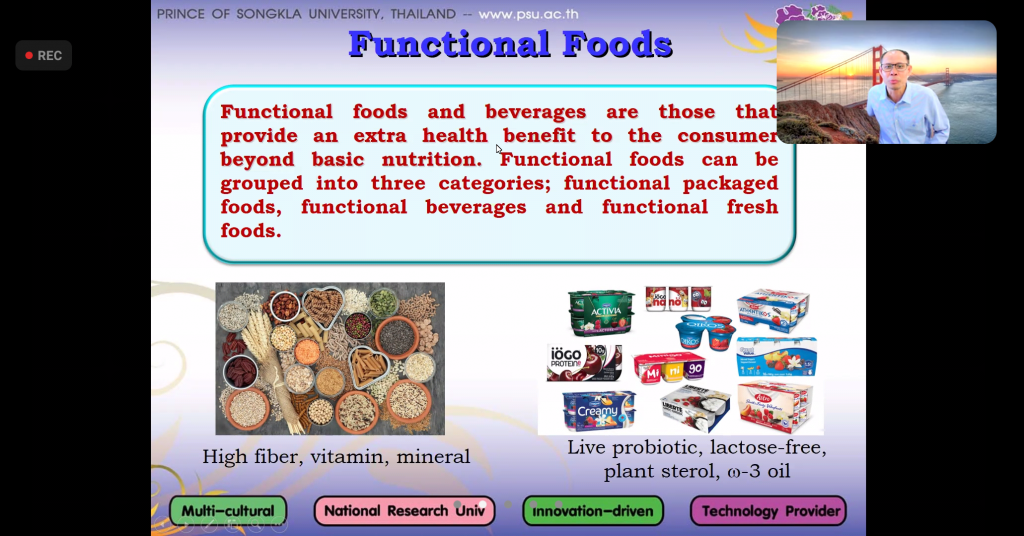
Revitalize Your Health: Exploring Functional Foods
Functional foods have emerged as powerful allies in promoting health and well-being. These are not just ordinary foods; they are nutritional powerhouses that offer specific health benefits beyond basic nutrition. In this exploration, we dive into the world of functional foods, understanding their significance and the transformative impact they can have on our health.
Defining Functional Foods: Beyond Basic Nutrition
Functional foods go beyond providing basic nutrients; they are intentionally enhanced to offer additional health benefits. These foods contain bioactive compounds, such as antioxidants, probiotics, and phytochemicals, that can positively impact various physiological functions. The goal is to support specific aspects of health beyond simple sustenance.
Antioxidant-Rich Superstars: Protecting Cells from Damage
Many functional foods are rich in antioxidants, substances that help neutralize free radicals in the body. Free radicals are unstable molecules that can cause cellular damage and contribute to aging and various diseases. Berries, dark leafy greens, and nuts are examples of functional foods packed with antioxidants, offering cellular protection.
Gut Health Boosters: Probiotics and Prebiotics in Action
Functional foods play a crucial role in promoting gut health by incorporating probiotics and prebiotics. Probiotics are beneficial bacteria that support a healthy gut microbiome, while prebiotics are fibers that nourish these friendly bacteria. Yogurt, kefir, and certain fibers are examples of functional foods that contribute to a balanced and resilient digestive system.
Heart-Friendly Choices: Functional Foods for Cardiovascular Health
Several functional foods have been linked to cardiovascular health. Foods rich in omega-3 fatty acids, such as fatty fish, flaxseeds, and walnuts, can support heart health by reducing inflammation and improving cholesterol levels. These functional choices contribute to overall cardiovascular well-being.
Brain-Boosting Nutrients: Cognitive Benefits of Functional Foods
Functional foods can also positively impact cognitive function. Omega-3 fatty acids found in fatty fish, for example, are essential for brain health. Blueberries, rich in antioxidants, have been associated with cognitive improvements. Including these functional foods in the diet may support mental clarity and overall cognitive function.
Blood Sugar Regulation: Functional Foods for Diabetes Management
Certain functional foods have demonstrated the ability to help regulate blood sugar levels, making them beneficial for individuals with diabetes. Foods high in fiber, such as legumes and whole grains, can contribute to stabilized blood sugar levels and improved insulin sensitivity.
Inflammation Reduction: Functional Foods as Natural Anti-Inflammatories
Chronic inflammation is implicated in various health conditions, from arthritis to heart disease. Functional foods with anti-inflammatory properties, such as turmeric, ginger, and green tea, can be valuable additions to the diet. These foods help the body manage inflammation naturally, promoting overall health.
Weight Management Allies: Functional Foods for a Healthy Lifestyle
Functional foods can be valuable allies in weight management. Foods high in fiber, protein, and those with metabolism-boosting properties can contribute to a feeling of satiety and support weight loss or maintenance. These functional choices align with a holistic approach to a healthy lifestyle.
Diverse and Delicious: Incorporating Functional Foods Into Your Diet
The beauty of functional foods lies not only in their health benefits but also in their diversity and deliciousness. From colorful fruits and vegetables to flavorful herbs and spices, incorporating functional foods into your daily meals can be a delightful culinary journey. Experiment with recipes and discover new ways to enjoy these health-promoting ingredients.
To explore a variety of high-quality functional foods, visit Functional Foods. Revitalize your health by embracing the power of functional foods and experiencing the positive impact on your overall well-being.
